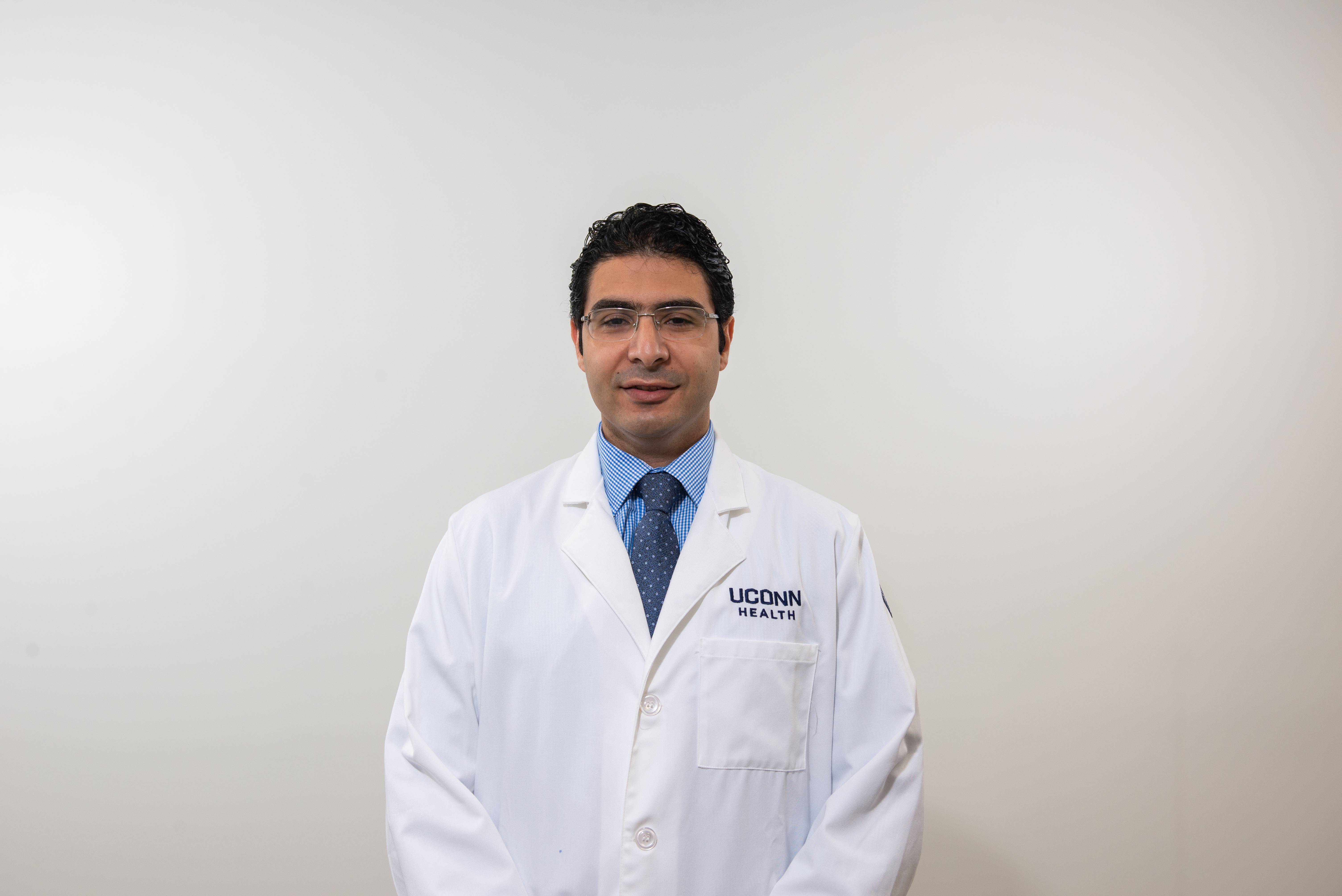Dr. Mina Boutrous, an innovative vascular surgeon who specializes in the latest minimally invasive endovascular techniques and treatments, recently joined UConn Health’s Division of Vascular and Endovascular Surgery, bringing with him his unique dual training in both cardiothoracic and vascular surgery.
“After becoming a cardiothoracic surgeon, I became very interested in endovascular surgery since you can do successful minimally invasive procedures without using any big, open incisions,” Boutrous says.
“I love being a vascular surgeon because it’s a very innovative field of medicine with new technology being developed every day to enhance patient care. It also allows me to apply my surgical skills across the body, from the head and neck for carotid artery and cerebrovascular disease, to the chest for aneurysm care, to the legs for peripheral arterial blockages.”
At UConn Health Boutrous cares for patients with vascular blockages related to carotid artery disease, cerebrovascular disease affecting optimal brain blood flow, peripheral arterial disease (PAD), and complex aortic aneurysms. In addition, he has special interests in visceral arterial disease, which impacts blood supply to the intestines, spleen, and liver, as well as the kidneys; and thoracic outlet syndrome, which causes compression of blood vessels or nerves between the collarbone and the first rib.
Thanks to Boutrous’ arrival in July, UConn Health now offers high-risk carotid artery disease patients minimally invasive endovascular TCAR (transcarotid artery revascularization). This innovative approach allows for the redirection of blood flow during carotid artery stenting to minimize a high-risk surgery patient’s risk of a stroke.
Boutrous, an assistant professor in vascular surgery, is currently working toward making UConn Health a designated center of excellence for TCAR. He believes TCAR will soon become the standard of care for the most fragile, older adults in need of an intervention but who are not candidates for a traditional surgery. In addition to being potentially lifesaving, TCAR has been shown to help reduce stroke risk and improve quality of life.
Boutrous received his medical degree and completed residency training in cardiothoracic surgery at Cairo University Faculty of Medicine. He completed his vascular surgery residency at St. Louis University, and a fellowship in advanced aortic surgery at the University of Texas Health Science Center.
“I really enjoy what I do, and I strive to take care of each vascular surgery patient personally, like I would treat my own family member — especially my older patients. I always enjoy talking and caring for them,” Boutrous says.
Learn more about Dr. Mina Boutrous or make an appointment via 1-84-GET-UCONN.



